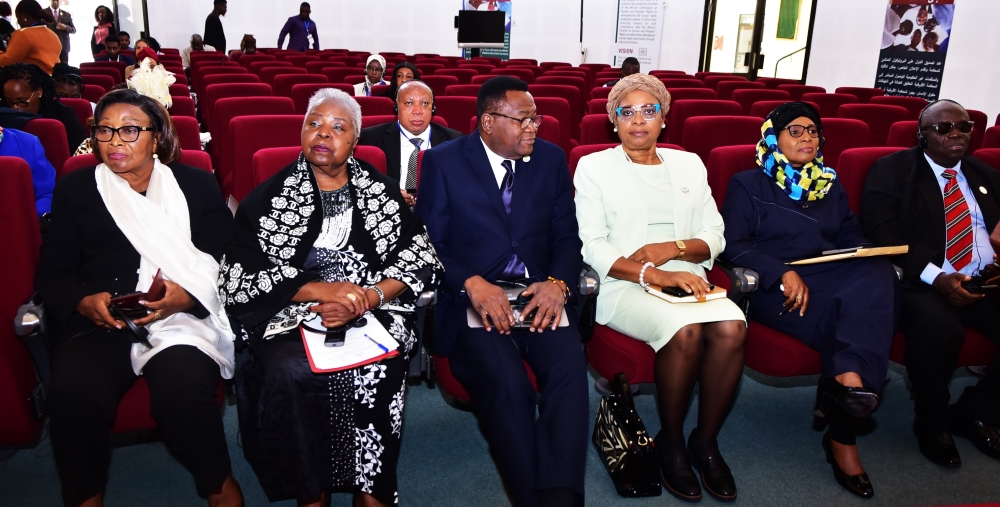All the ills and sufferings that women in the continent are usually subjected to are about to get an ultimate solution.
The African Court for Human and People’s rights, operating from Arusha, Tanzania is moving in assist women on the continent to access legal assistance and address the problems they face based on their gender.
“We want to make all women in Africa be aware that they have the right and easy access to the court, notwithstanding the complex procedures and the financial issues that can arise,” said Mary Izobo, the Advocacy Program Manager at the Center for the study of violence and reconciliation (CSVR).
She pointed out that women are still victims of stigmatization and face financial constraint whenever they attempt to see justice.
Izobo was speaking during the high-level conference on enhancing women engagement with the procedures of the African Court, designed to address some of the barriers which was held at the court premises in Arusha.
The Deputy Registrar of the African Court for Human and People’s rights, Grace Wakio Kakai explained that the Conference was designed to address some of the barriers that limit the stakeholders’ engagement with the Court.
“Among the barriers are the lack of awareness, and under-representation in the legal profession,” Grace stated after presenting a paper on ‘Litigating Women’s rights cases before the African Court.
She added that beyond addressing the said barriers, the conference will also foster networking and partnership building among the participants, building on the outcomes of the Judicial Seminar held in February 2025 under the theme ‘Advancing Justice for Women Through Reparations!’
The Arusha conference opened by the Vice President of the African Court, Lady Justice Chafika Bensaula, brought together a diverse group of stakeholders, including counsel on the Court’s Roster under the Court’s Legal Aid Scheme, Civil Society Organizations and NGOs focusing on gender and women’s rights.
The conference also featured gender equality experts and African Union organs with a human rights mandate.

Data from the World Bank (WB) indicate that over 42 percent of women and girls in the Eastern and Southern African region experience Gender-based violence (GBV) in their lifetimes, this is a social vice which is a critical barrier to development globally.
Gender-based violence (GBV) in African countries comes in the form of mental, physical or sexual viciousness and in some cases leading to deaths or permanent disabilities.
UN Women reports that nearly 45,000 women and girls worldwide are killed by their intimate partners or other family members annually, which means that, on average, more than five women or girls are killed every hour by someone in their own family.
In Uganda, about half of women (49 percent) reported being involved in online harassment at some point in their lifetime.
In Morocco, the total cost of physical and sexual violence against women was estimated at around USD 308 million, per a year.
According to UN Women, in Egypt, some 500,000 working days are lost each year due to marital violence, and the health sector bears more than USD 14 million in costs to serve just one quarter (600,000) of survivors.
Also, for every 10 victims of human trafficking detected globally in 2020, about four were adult women and about two were girls. Most of the detected victims of trafficking for sexual exploitation (91 per cent) are women.
Many of the cases either go unreported or get solved at family levels thus more and more women continue to suffer without help of legal assistance.
In addressing that, the Deputy Executive Director for the Institute for Human Rights and Development in Africa (IHRDA), Michael Gyan Nyarko said women suffer discrimination, gender violence and lack of access to political participation.
“The Judicial Seminar underscored the need to, among others, enhance awareness on the Court’s procedures and jurisprudence and enhance support for greater representation of indigent applicants through the Court’s Legal Aid Scheme,” he said.
At least 162 countries have passed laws on domestic violence, and 147 have laws on sexual harassment in the workplace.
However, even when laws exist, this does not mean they are always compliant with international standards and recommendations or are implemented and enforced.
In Africa, the women protecting laws are embedded in the African Union charter and according to the IHRDA official, when it comes to advocating and standing for women and child rights all AU members must take the responsibility and be accountable.

